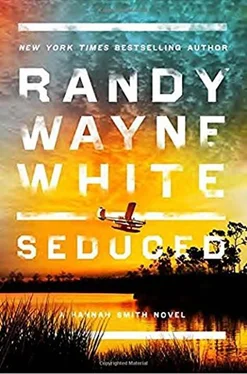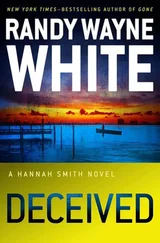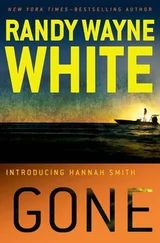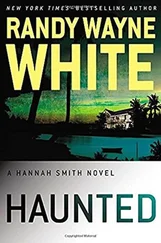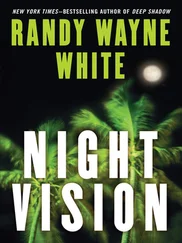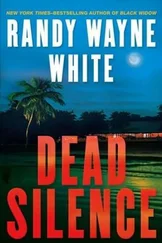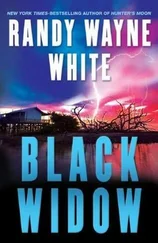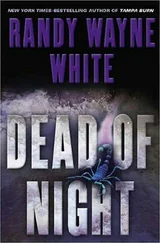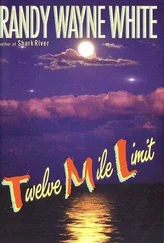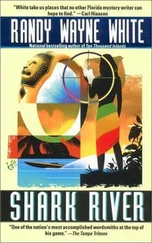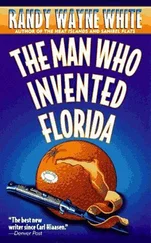“Stick it in that bag or carry it, I don’t care. When we get onshore, you take the shotgun. Check my billfold, too, but we both know how easy it is to fake IDs. Here, if you want-” He reached for his back pocket.
“You don’t need to do that,” I said. “I’m nervous, I admit it. I should’ve come out and said what’s on my mind.”
“Nervous is bad. Being careful, though, is smart. Hannah, every scenario you’ve considered; believe me, I would’ve done the same. Already did, in fact, back there while cutting our way through. Here’s the way it went-tell me if I’m close. Larry actually is Larry-or was.” His face tilted toward the skyline, where there might have been smoke if not for trees. “Lonnie and I could have cooked up the whole scheme, me in the role of Harney’s old pal Beano. After I’d killed him, of course, and fed his body to the alligators-that’s something Raymond Caldwell knows how to do. Lonnie gives me a list of three witnesses who saw us doing the dirty deed. Would a guy like Caldwell hesitate? Nope. Not if it involves money. Or keeping his kinky old girlfriend-”
“That’s close enough,” I said. “Isn’t it scary, how our minds sometimes work the same? There is one thing you left out-”
“No pictures on the Internet. Am I right? Not of Sabin Martinez. If there are, the ages didn’t mesh, or they didn’t look… well, sufficiently intimidating? But, then, you figured a man in my line of work would avoid broadcasting his-”
“Take your gun back,” I said. “This is just silly. You don’t need to convince me anymore.”
That wasn’t true. But we were here, now, in this remote place, and I had to cloak my doubts with confidence or risk a meltdown between us.
The man refused my offer in a convivial way yet was serious enough to say, “Keep the gun until we get back to Marco with oranges, or orange trees, or whatever it is you’re after. Under one condition. You test-fire that shotgun before stepping foot onshore, I don’t care how cold it is, I’m not kidding. Your story about giant snakes was convincing.”
When he again refused to take the Beretta, I placed it atop the console. The magazine went into my pocket, along with the bullet-after he’d turned around.
We had entered the serpentine bend. I motored along the concave edge, where water was deepest, then pointed. “See that spot just ahead? My last trip, we saw an orange floating, but it floated under the trees. We’ll pull in there. After I get an anchor set, and we’re tied up, I’d appreciate it if you tested the shotgun.”
“A show of trust,” Martinez said, not flattered but willing to make peace.
I, too, wanted to smooth things over. “You’re welcome to think so, but it could be because the darn thing kicks like a mule. Go ahead, open the duffel bag. It looks like the shotguns they carried on stagecoaches.”
Finally, a real smile: broad, white Teddy Roosevelt teeth framed in a bushy, graying beard. “I’d be honored,” he said, then, with the gun in his hands, amended, “If it doesn’t blow up in my face. This thing’s ancient.”
“My uncle got it somewhere. Or maybe it was handed down through the family. I don’t know. The last time I shot it, I was”-ten years old, I realized, here , while camping, but only said-“too young to ever want to shoot it again. The shells worry me. Don’t they go bad after a while?”
He snapped the gun open, tilted the walnut stock, saw twin triggers and high-ridged hammers on a barrel set only twenty inches long. “An old side-by-side coach gun. The best home-defense weapon there is.” He inspected a couple of shells. “Buckshot. Exactly what we need if it warms up.”
Snakes , he was referring to. It was impossible to scan the water without imagining a monster lying on the bottom or a python tracking us from the trees. I tested the temperature by exhaling as if blowing a smoke ring. My breath did not condense. I’d already unzipped my windbreaker; removing it seemed infidelity to my fears, but I took it off anyway. “Get the bowline ready,” I said. “You’ll need gloves. And watch the trees-they might be up there, getting sun.”
“Snakes?”
“Lay the shotgun on the deck,” I replied, “until we’re tied up.”
As I throttled closer, I dropped an anchor off the stern, then fed line until Martinez got his hands on a stout limb. I snubbed the anchor; he tied a flurry of half hitches. Soon, the boat was secure, bow and stern, on lines as taut as springs. On a falling tide, I didn’t want the engine to drift under the trees.
“Give it a try,” I said.
Martinez loaded the shotgun and fired twice into the water, the rounds spaced like signal shots. The results were mood-lifting, but the shells didn’t eject properly.
“Old Remingtons,” he said after prying them out. “Paper casings. They must have gotten damp over the years.”
He handed the gun to me. “Carry extra shells so you can get to them quick. A breast pocket or your right pocket. If it misfires, you need to be ready.”
I said, “Why don’t you take it? I’ll go first with a machete. You don’t know what it’s like, how thick the brush is.”
“Because you’re younger, I suppose, in better shape.” He smiled, viewing the scenery. “That’s true of some old guys, but this one might surprise you. Or are you trying to prove a point?”
“I have no doubt you’ve yet to reach your peak,” I replied, “but someone needs to clear a path. That way, you’ll keep both hands free if we-wait… You didn’t see this.” I reached for my phone and opened a gallery of photos.
Martinez, shaking his head, said, “If you were my client, my advice would be the same. Never give the only weapon to a stranger-especially if he’s walking behind you.”
“ You are carrying the shotgun,” I said, then showed him the photo of the python.
That settled the matter.
There is no solid ground in a mangrove swamp, only a gauntlet of rubbery roots and muck. “Give me a minute before you start,” I said, and headed into trees with a shoulder pack and the same machete I’d used before.
Martinez understood. Even with the leather thong, the machete might slip out of my hand. Low branches were also a problem in dense cover. Follow too closely, they could slingshot back and put an eye out. A shotgun, fired accidentally, could do worse.
No one walks through mangroves. You climb, and straddle, and monkey-bar your way through. Twenty yards in was an elevated area comprised of big whelk shells and horse conchs, all bone-white with age. A thousand years ago or more, Florida’s first people had lived here. They’d feasted on the meat and shaped the shells into tools.
At my feet lay a whelk the size of a gourd. Four symmetrical holes had been drilled through the spire. Nearby were whelks with similar patterns. I’d seen many shell tools, but none like this. I knew it was wrong to disturb such an artifact, but I picked it up anyway. The holes didn’t serve any obvious practical purpose. Perhaps it had been used in religious ceremonies; a vessel to sprinkle incense, like a censer used by priests. If so, it might bring me luck.
Absurd, the hopes we cling to when afraid.
I made a place for the shell in my pack, and continued on.
“See any oranges?” Martinez called to me. While securing the boat, he had reasoned the tree must be near the water if we’d found a floating orange.
“It might take a while,” I hollered back. “You’ll understand when you clear the mangroves. There’s a shell mound here… really steep, from what I can see. You can come on now.”
Behind me, I heard the splash of a big man kicking water. Ahead, the pile of shells angled upward into a curtain of vines. I cut my way through. Every few steps, I slashed a trail marker on the landward side of a tree so I could find my way out.
Читать дальше
